#雷魚
Explore tagged Tumblr posts
Text
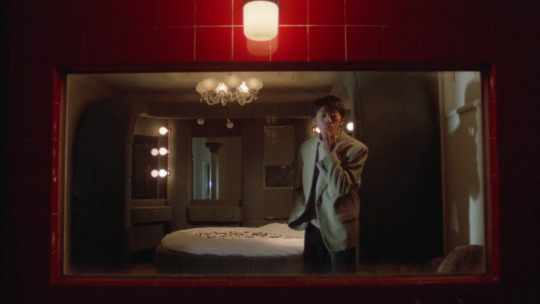
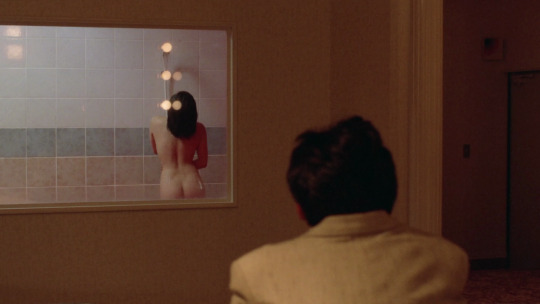
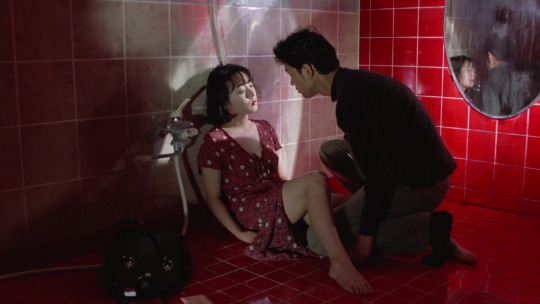

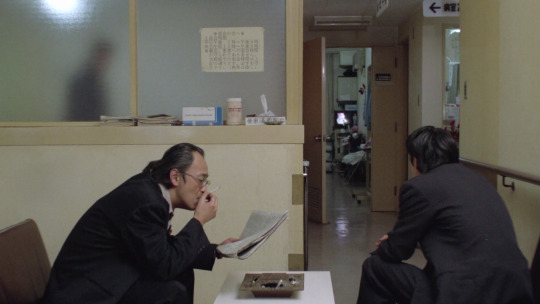
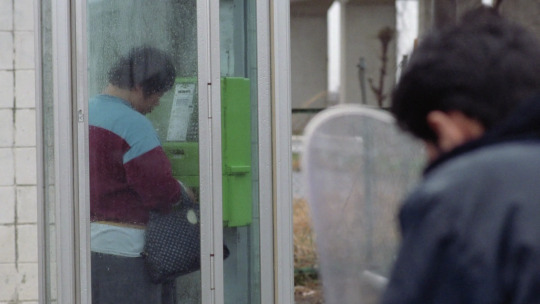
Takahisa Zeze
- Raigyo
1997
170 notes
·
View notes
Text



日本離れした広大なヒシカバー帯に突撃してきました。
というか、河川のポイントは台風7号の影響で浮き草の多くが消失していたのもあって、陸っぱりはまあまあ厳しかったです。
でも伊庭内湖は今年も見渡す限りのヒシの絨毯。ここを全部撃ちしても時間の無駄なので、ヒシカバーとショアラインの2mくらいの間やポケットに狙いを定めて反応をみます。
が、なかなか気配を感じられない…
琵琶湖の雷魚は一般的によく言うフロッグへの「付き」が無いまま、何の前触れもなく突然喰ってくる行動パターンがよくあります。
魚食性が強いからなのか理由はよくわかりませんが、特に雷魚のテリトリー意識が薄くなる夏から秋にかけてはそんな出方に焦ってしまってモノにできないことが多々ありました。
この日の朝も最後に一発そんな唐突なアタックがあったもののミスバイ���。よく見て食べてよ!
結局、オープンエリアのスピナーベイトでバスx1で終了。うーん、今年もNo雷魚になってしまうのか?
9月にもう1、2回チャンスがあるけど、どこに行こうかな。
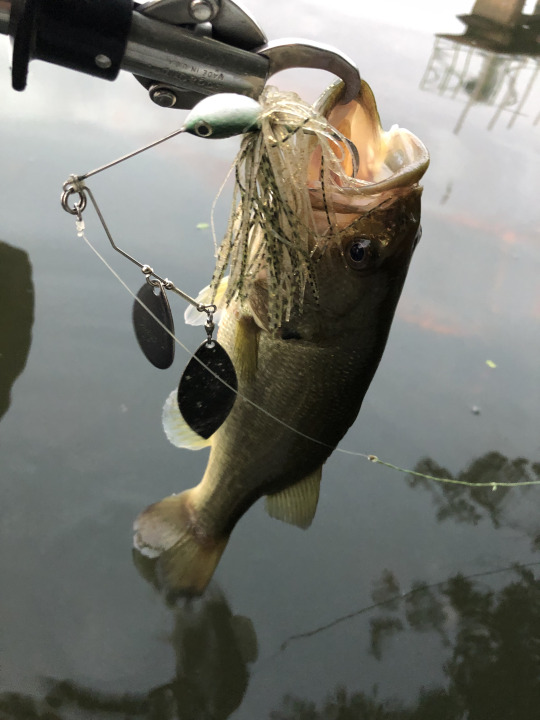

3 notes
·
View notes
Text
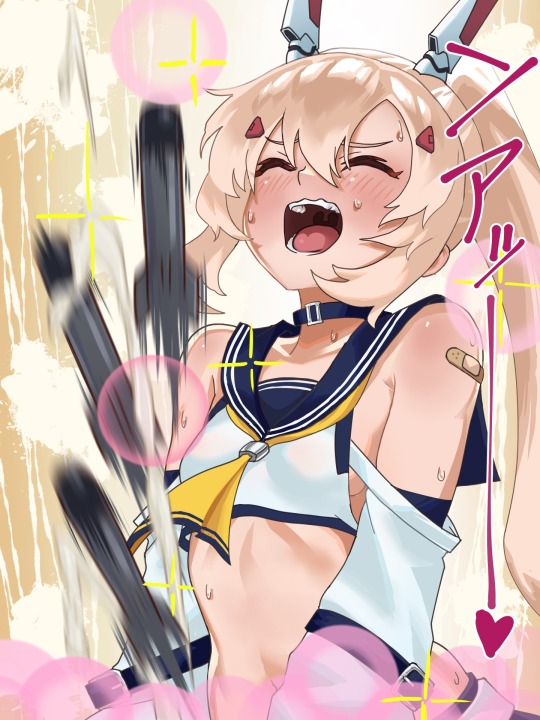
洞窟マムル
166 notes
·
View notes
Text
新しい本が届いた。わたしは明日から新著を読むことが出来る。そんな風にわたし達の生活は全く四海を空うし天下を睨睥すると云つた大人物からすればお話にならぬながら、わたしはエチオピアを征服するよりも本の数頁を読む方が好ましいのである。
— 新居格著「小さな世界」(荻原魚雷編『新居格 随筆集 散歩者の言葉』2023年12月、虹霓社)
3 notes
·
View notes
Text
つけ麺 魚雷 天神店@中央区渡辺通
2024年8月3日土曜日11:15
限定麺 煮干し系背脂醤油ラーメン ¥1000(提供は終了)
住所:福岡市中央区渡辺通3-8-9
TEL:092-753-94
営業時間:11:00〜14:30 18:00〜21:00
定休日:火曜日
note
2 notes
·
View notes
Text
Underwater Clock
1 note
·
View note
Text


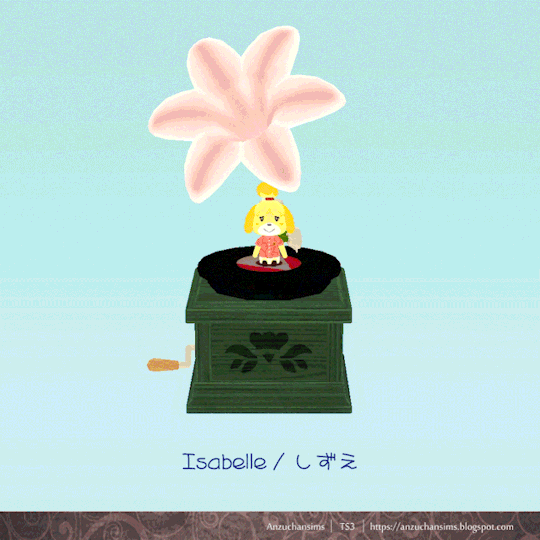
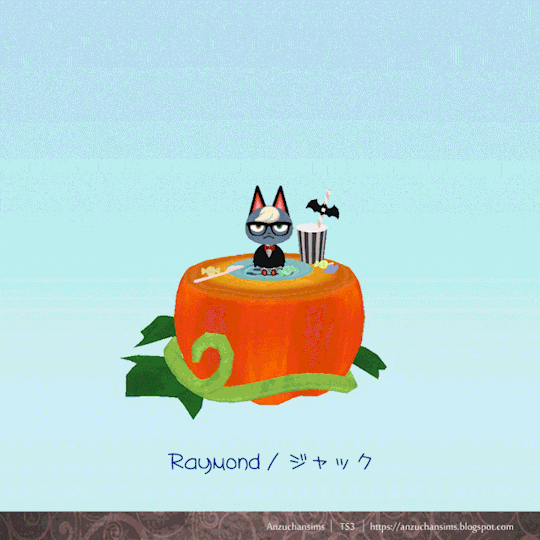

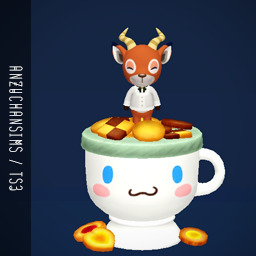

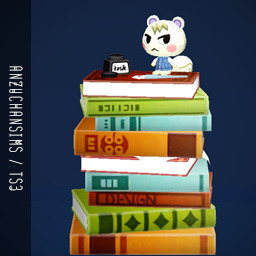

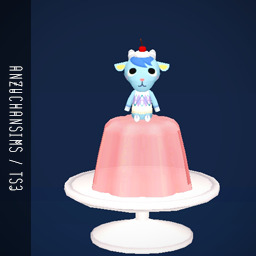



[ ACNH to TS3 ] Functional Music Boxes
There are 6 different music boxes in TS3, and while the sound effects are great, they look really rough. The first time I saw the ballerina doll, it really gave me a fright. 😲 So, recently, whenever I have some free time, I've been trying to create my own music boxes.
Animal Crossing is my favorite game on the Switch. The villagers are just too adorable. Even now, I still open the game during New Year's and on my birthday to celebrate with them. I think it would be amazing to see these characters in The Sims 3 too. My favorite villager is Jacob (I call him "Fishcake" because of the Chinese pun on his name). He loves food, so I made his music box base a whole birthday cake. I also paired other lazy villagers with food. 🤣
Room Category:Nursery / Toys
Function Category:Kids / Kids Toys
Required Expansion:Ambitions After installing these files, the original EA figures in the music boxes will disappear.
模擬市民裡面有六種不同的音樂盒,音效很好,但做工粗糙。 我第一次把鏡頭對準芭蕾舞孃的時候真的嚇了一大跳。 所以最近一有空,我就開始研究怎麼製作音樂盒了。 原本想要做成預設替代,但後來還是決定另外做成新的。
動物森友會是我最喜歡的 Switch 遊戲。那些居民真的太可愛了。 一直到現在,新年和生日的時候我都會打開遊戲和小動物一起慶祝。 我想如果能在模擬市民裡也見到這些角色一定很棒吧。 我最愛的小動物是呆萌的余板(我都叫他魚板),他很喜歡吃東西,所以我給他的底座是一整個生日蛋糕。 其他悠閒系的居民我也都搭配上了食物 🤣 滿滿的私心,這幾位都是我島上的常駐居民。
房間標籤:兒童房 / 玩具
功能標籤:兒童 / 兒童玩具
注意:需要夢想起飛資料片。 安裝這些檔案之後,原本的音樂盒裡的角色大部分都會消失。
Isabelle / しずえ / 西施惠
Beau / ぺーター / 彼得
Jacob / ジャコテン / 余板
Marshal / ジュン / 小潤
Raymond / ジャック / 傑克
Sherb / レム / 雷姆
Snow Globe / スノーグローブ / 下雪水晶球
Credit
Music box:Simdertalia / Animal Crossing New Horizons
Download
#sims 3#sims 3 download#sims 3 cc#sims 4 to sims 3#s3cc#ts3cc#ACNH#Animal Crossing#Animal Crossing New Horizons#sims 3 functional mods#Ambitions#4to3#4t3
324 notes
·
View notes
Text
So I guess this is a good time to do a recap of some old Ukitake posts: [1][2][3][4][5][6]
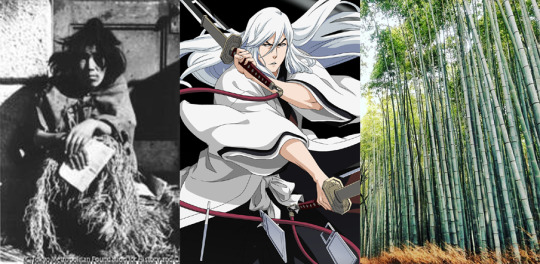
Ukitake[浮竹] Juushirou[十四郎] actually has one of my favorite names in the series as it feels like it says a lot about his core concept beyond what we're really given in canon. The family name reads uki-[浮]: "Floating" and take-[竹]: "Bamboo." That same "floating" is part of the word fuurou[浮浪]: "vagrant/vagabond" and a few other colloquial terms, a generally circling around a homeless person or a drifter. (In fact the other half of that compound word, [浪] is the "wave" in ronin[浪人]: "wave man/person" as in a masterless samurai.) Bamboo being a staple lumber in Japan of course but also notorious for its fast and rampant growth, as it is quick to spread and choke out other plants in an environment. The idea of "floating..." or "vagrant bamboo" gives an impression of being plentiful and common, even excessive.
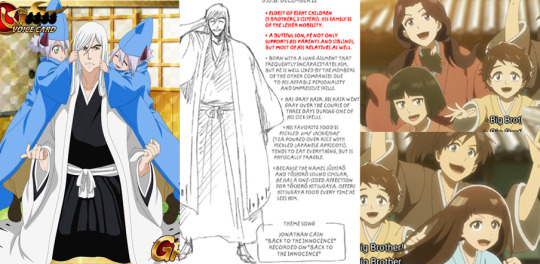
The personal name, Juushirou[十四郎] just reads "14(th) Son" which always implied he came from a large family. A profile in the back of vol. 18 long ago confirmed he had brothers and sisters, but curiously all younger than him. The implication seemed clear that as a sickly person from a big family, he was poor and that there were 13 prior children who died before him, which is really the only reason you'd name a child the way they did. This feels like it works in tandem with the family name to again emphasize a family of many, but also almost expendable. The big family is also why he's got an affinity for children
That said it always felt to me like the backstory should have been more grim? Like rather than just praying to a god to save his life, it seemed more like he should have been a sacrifice made to ensure the family line continued. Like first 13 kids died, they were afraid he was their last chance, but he was sickly, so they sacrificed him to basically ensure the next ones would come out alright. Hence the kids younger than him surviving in spite of the ominous past implied by his name.
(Also the "shiro" phonetics in his name as a homonym with shiro[白]:white point to his hair. Kubo makes an explicit joke about this as Toshiro, also white haired, shares a similar wordplay, his name Toshirou[冬獅郎] meaning "Winter Lion Son.")
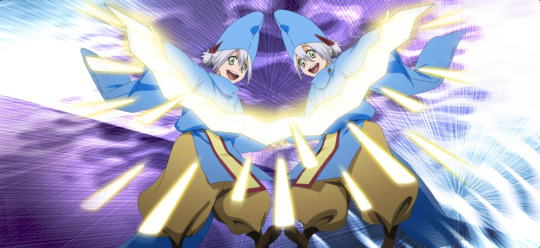
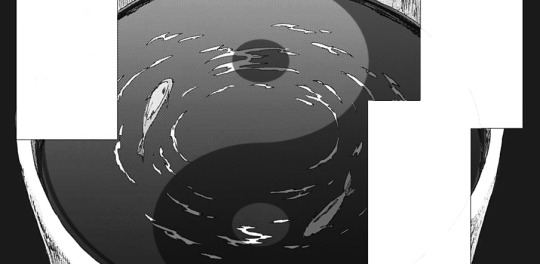
Then there's his shikai, Sougyo-no-Kotowari[双魚理] which reads "PairFish's Reason/Logic/Natural way of things." (sougyo-kyu[双魚宮] is the Japanese name of the constellation Pisces.) It appears to be an allusion to daoism/onmyodo, and the yin-yang diagram of balance, and this theme gets built upon by other contextual information like the zanpakutou arc's designs borrowing from onmyoji, and Ukitake's presence in conjunction with fish imagery and metaphor in the Jaws of Hell arc.
The little preamble to that chapter, about the two fish in balance until one dies and then the other grows bigger, is itself synonymous with sougyo-no-kotowari: The Natural Order of Two Fish.
The release command [波悉く我が盾となれ]: "All Waves be my shield," [雷悉く我が刃となれ]: "All LightningBolts be my blade" is fairly straight forward and just evokes the image of a stormy sea, which actually seems to have surprisingly little to do with the rest of the themes in play? I mean sure, waves and fish and floating, but when the floating and fish are less than literal the waves and lightning without any additional reading feel kind of out of place?
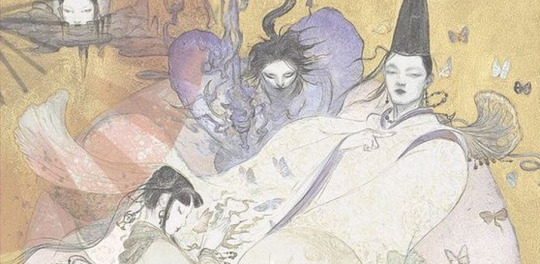
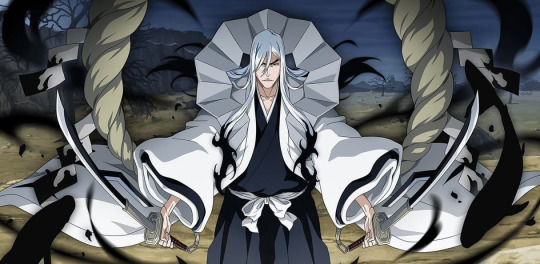
Of note: the onymoji was a prestigious class of sort of advisor in the japanese imperial court was at its peak in the Heian period, the long standing era of peace in ancient Japan that came just before the descent into the civil war of the Sengoku period. (Subsequently the onmyoji lost most of their power and clout during the waring states period as power shifted from the imperial court to the shogunate.) They were associated with and consulted for a wide range of things from medicine, to architecture, to city planning and meteorology, and divination, and perhaps most well loved by media, as exorcists. This ties into things like his beyond bankai form in Bleach Brave Souls where they opt for a more shinto purification theme, in either case making him fit something of a paragon role as Shinigami as ""cleansing"" hollows rather than destroying them.
Actually those shinto motifs all link to the recent addition of shinto themes in Mimihagi pretty directly, but I'll get to that in a bit...
It's worth noting that with Kyoraku's emphasis on a leisurely city life in the capital(Kyoto), and the onmyo mystic themes of Sougyo-no-kotowari, Kyoraku and Ukitake appear to both represent aspects of the Heian period, and thus cultures that predate the Sengoku period, and the rise of the samurai, lending to their role as two of the most senior members of the gotei 13.

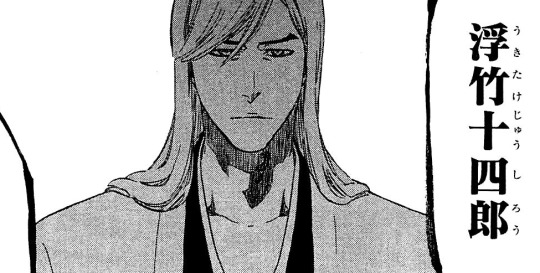
People often forget but technicaly Ukitake was the first captain we were introduced to, well before Byakuya showed up, the Captain title just wasn't present at the time. When Rukia has her flashback to a then uncertain event while Ichigo fights Grandfisher, it's Ukitake she's hearing speak and that we catch just a brief glimpse of the back of the head of. Like I said there were no captain ranks in the story a that point, so he just appears as long flowing white hair over an all black shihakusho. I think his hair was always meant to help him embody an element of balance between black and white, and thus the very series title: Bleach.
I think there was always an implicit siniste quality to the idea of "Balance" underlying the shinigami that Kubo tried to gesture towards with the general vibe of the Soul Society -v- Rukongai dynamics, the Shibas, that flicker of a twist in the Fullbringer arc that Ichigo just ignored, and even with a lot of the loose and ultimately unfulfilled themes he set up for the TYBW arc with Yhwach's plans for a new world and Juugram's Balance schrift.
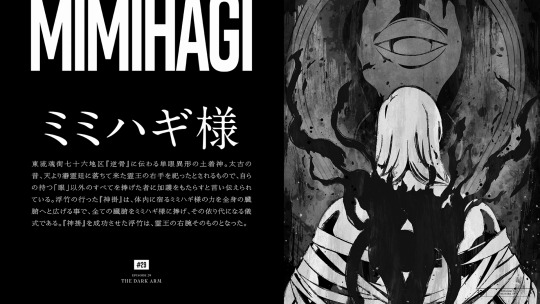
Oh I forgot the whole MIMIHAGI bit, despite teh being the whole subject of this week's episode:
東流魂街七十六地区『逆骨』に伝わる単眼異形の土着神。
An indigenous God of Grotesque/Suspicious Single-eye passed down in East Rukongai 76(th) zone "Sakahone(Reverse Bone)"
太古の昔、天より瀞霊廷に落ちて来た霊王の右手を祀ったとされるもので、自らの持つ「眼」以外のすべてを捧げた者に加護をもたらすと言い伝えられている。
(In)Ancient Times, From Heaven to the Seireitei the fallen right hand of the Rei-Oh is said to have been enshrined.
浮竹の行った『神掛』は、体内に宿るミミハギ様の力を全身の臓腑へと広げる事で、全ての臓腑をミミハギ様に捧げ、その依り代になる儀式である。
Ukitake's performed "Kamikake(God debt)" was, the power of MIMIHAGI dwelling in the body spreading to the whole of the viscera/entrails, offer up all of your entrails to MIMIHAGI-sama, it is a ceremony/ritual to become a Yorishiro*
『神掛』を成功させた浮竹は、霊王の右腕そのものとなった。
Ukitake succeeded at/with "Kamikake", he had become the right hand of the Rei-Oh.
*i don't have a more concise way to translate this... the translation listed run something like "object representative of a divine spirit"/" object to which a spirit is drawn or summoned"/"object or animal occupied by a kami" and it's specifically a shinto thing.
When you see big deified trees with the shimenawa ropes and shide paper talismans, those trees are yorishiro. or rather they're Shintai, because a Yorishiro is a thing capable of being host to a kami, the Shintai is after they've been deified. (And technically when you do that to a person it would be called Yorimashi, not Yorishiro. I don't know if that's meant to specifically dehumanize Ukitake or if its a broad enough term that it doesnt really make a difference. Although if you really wanted to stretch it you could argue that Ukitake is an object and not a person because he did die from his illness and the thing deified wasn't a "living" person it was a corpse. Which would very curiously position him as an inversion of Ichigo, who was human, "died" in that his soul was deliberately severed from his body, but continued to operate as nominally human while getting to dip a toe into the shinigami powers and the spirit world.)
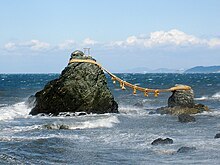
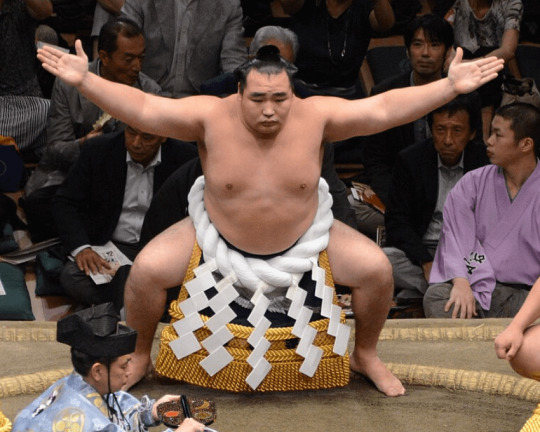

These little eye catch data cards really aren't giving us anything new huh?
#bleach#bleach meta#recap of junk i already posted years ago mostly#some of which i dont even know if id stand by today#but im too selfconcious to really reread my old shit#i know its bad#jushiro ukitake
50 notes
·
View notes
Text
Sun Wukong's Final Battle
Journey to the West (Xiyouji, 西遊記, 1592) chapter 99 describes the Monkey King's final battle as a fierce, stormy confrontation against demons wishing to steal the hard-won scriptures for themselves. This takes place shortly after the pilgrims and holy texts are dumped into a river by an annoyed river turtle spirit:
Master and disciples had just climbed up the riverbank when suddenly a violent gale arose; the sky darkened immediately and both thunder and lightning began as rocks and grit flew everywhere. What they felt was One gust of wind And the whole world teetered; One clap of thunder And both mountains and streams shuddered. One flash of lightning Shot flames through the clouds; One sky of fog Enveloped this Great Earth. The wind's mighty howl; The thunder's violent roar; The lightning's scarlet streaks; The fog blanking moon and stars. The wind hurtled dust and dirt at their faces; The thunder sent tigers and leopards into hiding; The lightning raised among the fowl a ruckus; The fog made the woods and trees disappear. That wind caused waves in the Heaven-Reaching River [Tongtian he, 通天河] to toss and churn; That lightning lit up the Heaven-Reaching River down to its bottom; That thunder terrified the Heaven-Reaching River's dragons and fishes; That fog covered the shores of Heaven-Reaching River with a shroud of darkness. Marvelous wind! Mountains cracked as pines and bamboos toppled. Marvelous thunder! Its power stirred insects and injured humans. Marvelous lightning! Like a gold snake it brightened both land and sky. Marvelous fog! It surged through the air to screen the Ninefold Heaven [Jiuxiao, 九霄]. So terrified were the pilgrims that Tripitaka held firmly to the scripture wraps and Sha Monk threw himself on the poles. While Eight Rules clung to the white horse, Pilgrim twirled the iron staff to give protection left and right. That wind, fog, thunder, and lightning, you see, had been a storm brought on by demons of yin energy" [yinmo, 陰魔], who wanted to snatch away the scriptures the pilgrims had acquired. The commotion lasted all night, and only by morning did the storm subside. Soaked from top to bottom and shaking all over, the elder said, "Wukong, how did this storm come about?" "Master, you don't seem to understand," said Pilgrim, panting heavily, "that when we escorted you to acquire these scriptures, we had, in fact, robbed Heaven and Earth of their creative powers. For our success meant that we could share the age of the universe; like the light of the sun and moon, we would enjoy life everlasting for we had put on an incorruptible body. Our success, however, had also incurred the envy of Heaven and Earth, the jealousy of both demons and gods [guishen, 鬼神], who wanted to snatch away the scriptures from us. They could not do so only because the scriptures were thoroughly wet and because they had been shielded by your rectified dharma body [zhenfa shen, 正法身], which could not be harmed by thunder, lightning, or fog. Moreover, old Monkey was brandishing his iron rod to exercise the nature of pure yang energy [chunyang zhi xing, 純陽之性] and give you protection. Now that it is morning, the forces of yang are evermore in ascendancy, and the demons cannot prevail." Only then did Tripitaka, Eight Rules, and Sha Monk realize what had taken place, and they all thanked Pilgrim repeatedly (based on Wu & Yu, 2012, vol. 4, pp. 363-365).
師徒方登岸整理,忽又一陣狂風,天色昏暗,雷閃並作,走石飛沙。但見那: 一陣風,乾坤播蕩;一聲雷,振動山川。一個熌,鑽雲飛火;一天霧,大地遮漫。風氣呼號,雷聲激烈。熌掣紅銷,霧迷星月。風鼓的沙塵撲面,雷驚的虎豹藏形。熌晃的飛禽叫噪,霧漫的樹木無蹤。那風攪得個通天河波浪翻騰,那雷振得個通天河魚龍喪膽。那熌照得個通天河徹底光明,那��蓋得個通天河岸崖昏慘。好風,頹山烈石松篁倒。好雷,驚蟄傷人威勢豪。好熌,流天照野金蛇走。好霧,混混漫空蔽九霄。 諕得那三藏按住了經包,沙僧壓住了經擔,八戒牽住了白馬;行者卻雙手輪起鐵棒,左右護持。原來那風、霧、雷、熌,乃是些陰魔作號,欲奪所取之經。勞攘了一夜,直到天明,卻才止息。長老一身水衣,戰兢兢的道:「悟空,這是怎的起?」行者氣呼呼的道:「師父,你不知就裡。我等保護你取獲此經,乃是奪天地造化之功,可以與乾坤並久,日月同明,壽享長春,法身不朽。此所以為天地不容,鬼神所忌,欲來暗奪之耳。一則這經是水濕透了;二則是你的正法身壓住,雷不能轟,電不能照,霧不能迷;又是老孫輪著鐵棒,使純陽之性,護持住了;及至天明,陽氣又盛:所以不能奪去。」三藏、八戒、沙僧方才省悟,各謝不盡。
I really like the idea of a battle between a divine force of yang energy and demonic forces of yin. This is a common occurrence in Chinese Folk Religion—e.g. a Tangki spirit-medium channeling a god to exorcise evil spirits.
But the above description really sets my mind alight with images of the confrontation. Monkey peers through the pouring rain to see an unfathomably large demon army the likes of which the cosmos has never seen. It contains innumerable commanders, vanguards, and an ocean of spirit-soldiers armed to the teeth. This demonic force would be the joint effort of demon kings and jealous gods wanting immortality and salvation for themselves. [1] Monkey takes this assault on the scriptures as a personal insult given his great effort in helping procure them.
A demon commander might say something like, "Leave the scriptures and the priest if you value your life!" Then Wukong would scream:
Who said that? Who the FUCK said that? Who's the slimy, little, demonic shit, twinkle-toed, cocksucker up there, who just signed his own death warrant? [Surprised silence from the army] Nobody, huh? The fairy-fucking-godmother said it! Out-fucking-standing! [pounds chest three times in a row] I WILL BEAT YOU ALL UNTIL YOU FUCKING DIE!!!!!!!!!!!!!! (Adapted from dialogue spoken by Gunnery Sergeant Hartman from Full Metal Jacket (1987).)
In all seriousness, though, his speech should be a chilling threat similar to Subodhi from chapter 2:
[Y]ou can be assured, wretched monkey, that you'll be skinned alive. I will break all your bones and banish your soul to the Place of Ninefold Darkness, from which you will not be released even after ten thousand afflictions! (Wu & Yu, 2012, vol. 1, p. 125) ... 把你這猢猻剝皮剉骨,將神魂貶在九幽之處,教你萬劫不得翻身!
Anyway, the army commences its attack, the commanders sending forth wave after wave of spirit-soldier units wielding thunder and lightning as their weapons. In response, Monkey's body explodes with millions or even billions of hair clones to meet the oncoming storm. Each one wields the magic iron rod, which dispenses pure yang energy along with every ass kicking. The resulting battle is beyond imagination, with various units of Great Sages working to both defend the scriptures and Tripitaka but also drive back and decimate the malevolent force. Wukong succeeds in routing/destroying the entire demon army by dawn of the next morning.

Note:
1) The Buddha states that the scriptures of the Great Vehicle are "for the cultivation of immortality; they are the gate to ultimate virtue" (Wu & Yu, vol. 1, p. 205).
Source:
Wu, C., & Yu, A. C. (2012). The Journey to the West (Vols. 1-4) (Rev. ed.) Chicago, Ill: University of Chicago Press.
#Sun Wukong#Monkey King#Journey to the West#story idea#Lego Monkie Kid#LMK#scriptures#JTTW#demons#spirits#thunder and lightning#army#epic battle
57 notes
·
View notes
Quote
「俳句は望遠レンズです。28-125というような望遠レンズをカタオカさんも使うでしょう。28ミリで広く俯瞰します。遠景ですね。次に80ミリ前後で中景をおさえ、最後に125ミリでアップです」これを聞いてすぐに作ったのが、「遠雷やバス待つ女赤い靴」という句だった。
『才人と俳人 俳句交換句ッ記』|紙魚
29 notes
·
View notes
Text





Takahisa Zeze
- Raigyo
1997
89 notes
·
View notes
Text
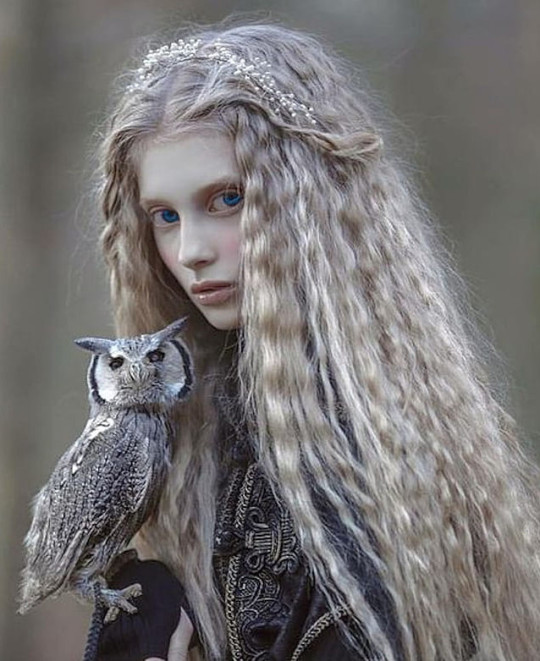
Legends and myths about trees
Forest myths, Estonian traditional beliefs (4)
The world of the Estonians’ ancestors – Mythical motifs in Estonian runic songs
The Estonian literary mythology describes the following pantheon: The supreme god, the god of all living things, is Taara (variations of the name include Tooru, Tharapita and Tarapitha), also known as Uku or Jumal, is a prominent god in Estonian mythology, with a strong resemblance to the Finnish Ukko and the Germanic Thor. He is celebrated in sacred oak forests around Tartu. The god of thunder is Uku. Uku's daughters are Linda and Jutta, the queen of the birds. Uku has two sons: Kõu (Thunder) and Pikker (Lightning). Pikker possesses a powerful musical instrument, which makes demons tremble and flee. He has a naughty daughter, Ilmatütar (Weather Maiden).
Estonian legends about giants (Kalevipoeg, Suur Tõll, Leiger) may be a reflection of Germanic (especially Scandinavian) influences. Giants themselves in some stories stood as protectors against such Germanic influences, such as invasion. There are numerous legends interpreting various natural objects and features as traces of Kalevipoeg's deeds. The giant has merged with Christian Devil, giving birth to a new character – Vanapagan (a cunning demon living on his farm or manor) and his farm hand Kaval-Ants ("Crafty Hans").
Other mythical motifs from Estonian runic songs:
a mighty oak grows into the sky, is then felled and turned into various mythical objects
Sun, Moon and Star are the suitors of a young maiden, she finally accepts the Star
a crafty blacksmith forges a woman of gold but is not able to give her a soul or a mind
a holy grove starts to wither after having been desecrated by a love-making couple; only sacrificing nine brothers cleanses it
mighty heroes are not able to kill a terrible giant ox, but a little brother is
a woman is forced to kill her daughter who then goes to live in the heaven as the Air Maiden
a girl finds a fish and asks her brother to kill it – there is a woman inside the fish
young girls go out at night and young men from the holy grove (or the land of the dead) seduce them by offering them riches
a lake travels to another place when it has been desecrated by an inconsiderate woman or an incestuous couple

木にまつわる伝説・神話
森の神話・エストニアの民間伝承 (4)
エストニア人の祖先の世界 〜 ルーン文字の歌詞に見られる神話のモチーフ
エストニアの文学的神話には、次のようなパンテオンが描かれている: すべての生きとし生けるものの神である最高神はタアラであり、タルトゥ周辺の神聖なオークの森で祭られている。タアラ(トオル、タラピタなどの異称がある)は、ウクまたはユマルとも呼ばれるエストニア神話の著名な神で、フィンランドのウッコやゲルマン民族のトールに類似している。タルトゥ周辺の神聖なオークの森で祭られている。ウクの娘はリンダと鳥の女王ユッタ。ウクには2人の息子がいる: コオウ(雷)とピッカー(稲妻)である。ピッカーは強力な楽器を持っており、悪魔を震え上がらせて逃走させる。彼にはいたずらっ子の娘イルマチュタル(天気の乙女)がいる。
巨人(カレヴィポエグ、スオトール、レイガー)に関するエストニアの伝説は、ゲルマン人(特にスカンジナビア人)の影響を反映したものかもしれない。巨人そのものが、侵略などのゲルマン人の影響から身を守る存在であったという話もある。様々な自然物や特徴をカレヴィポエグの行いの痕跡と解釈する伝説が数多くある。この巨人はキリスト教の悪魔と融合し、ヴァナパガン(彼の農場や荘園に住む狡猾な悪魔)と彼の農夫カヴァル=アンツ(「狡猾なハンス」)という新しいキャラクターを生み出した。
エストニアのルーン文字の歌詞には、他にも神話的なモチーフがある:
樫の木が空に向かって伸び、伐採され、さまざまな神話上のオブジェに変わる。
太陽、月、星は若い乙女の求婚者であり、彼女は最終的に星を受け入れた。
狡猾な鍛冶屋が金の女を拵えたが、彼女に魂や心を与えることはできなかった。
聖なる木立が、愛し合うカップルによって冒涜された後、枯れ始めるが、9人の兄弟を生贄にすれば浄化される。
強大な英雄は恐ろしい巨大な牛を殺すことができないが、弟は殺すことができる。
ある女性が自分の娘を殺さざるを得なくなり、その娘は天界で空気の乙女として生きることになる。
少女が魚を見つけ、兄に殺してくれるよう頼む - その魚の中に女がいる。
若い娘が夜に外出すると、聖なる木立(または死者の国)から来た若い男たちが金持ちを差し出して誘惑する。
軽率な女や近親相姦のカップルによって冒涜された湖は、別の場所に移動する。
#trees#tree myths#tree legend#folklore#legend#mythology#estonian mythology#runic songs#estonian mythic motifs#forest#nature#art
120 notes
·
View notes
Quote
鎌倉時代→とりあえず殺そう 室町時代→殺してから考えよう 戦国時代→考えてから殺そう 江戸時代→殺さないようにしよう ここまでくるのに500年くらいかかった
地雷魚 on Twitter: "鎌倉時代→とりあえず殺そう 室町時代→殺してから考えよう 戦国時代→考えてから殺そう 江戸時代→殺さないようにしよう ここまでくるのに500年くらいかかった" / Twitter
217 notes
·
View notes
Text
線の太い感じのする良書を読むと、精神から体にひびいて、これもたしかに体にいいようだ。
— 富士正晴著「なまけ親父」(荻原魚雷編『新編 不参加ぐらし』2023年10月、中公文庫)
2 notes
·
View notes
Text
博多丿貫@中央区天神
2024年4月15日月曜日13:03
紅ズワイ蟹と浅利の合わせ蕎麦 ¥950
住所:福岡市中央区天神3-2-3
TEL:092-791-1789
営業時間:11:00〜15:00 17:00〜21:00
定休日:日曜日
note
4 notes
·
View notes
Quote
たとえば、飛鳥時代の蘇我馬子。当時は相当な権力者でしたが、本人が大王になろうとまではしませんでした。平安時代の藤原道長も平清盛もそう。2人とも、自分の娘を天皇に嫁がせて外戚となり、権威を利用しただけです。 室町幕府の3代将軍・足利義満も、天下統一直前だった織田信長も、天皇になろうとか排斥しようと思ったことはありません。天下を統一した豊臣秀吉も、朝廷を滅ぼすだけの力を持っていましたが、あえて関白に就任しています。天皇の補佐をすることで、農村の足軽出身という出自の低さをリカバーしようとしました。 日本史上最強である徳川家康の一族でさえも、朝廷の天皇から代々征夷大将軍・内大臣に任命される道を選び、朝廷を潰そうとはしませんでした。 明治時代以降も、どんなにいいポジションにいても、誰一人として天皇に成り代わろうと考えた人物はいないのです。 そういう意味では、太平洋戦争後、GHQのマッカーサーが天皇制を維持した判断は正しかったといえます。天皇や国のために神風特攻隊や人間魚雷として命を投げ出すような国民ですから、天皇制を廃止してしまったら何をするかわからないし、日本はまとまらないと考えた背景には、これだけの歴史があったのです。
なぜ日本の天皇は125代も続いてきたのか 織田信長もGHQも倒そうとしなかった | リーダーシップ・教養・資格・スキル | 東洋経済オンライン
47 notes
·
View notes